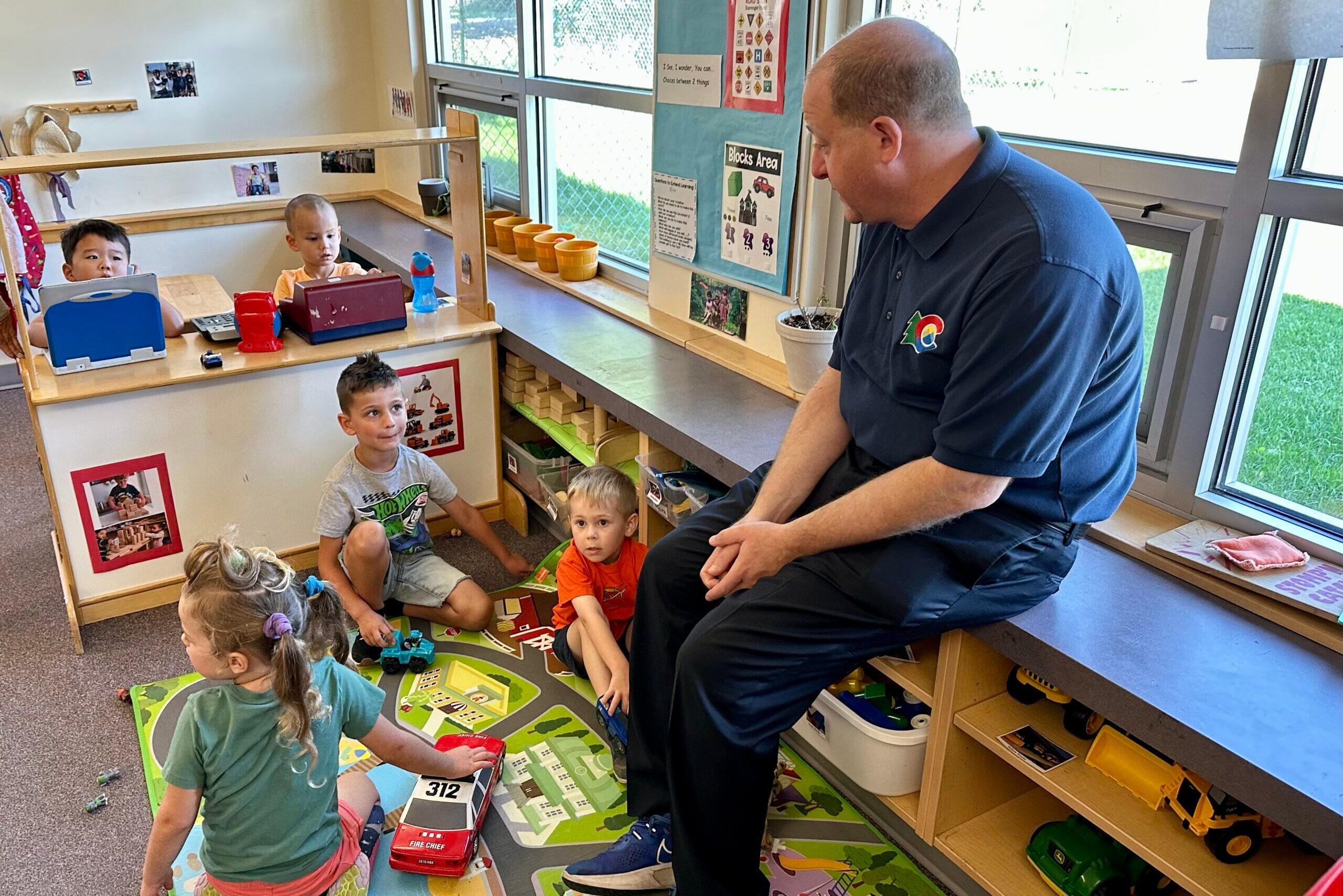
A Denver district judge heard arguments Tuesday for and against dismissing a lawsuit brought by several school districts against the state over its implementation of universal preschool.
Voters approved universal preschool more than three years ago for every 4-year-old in the state and some 3-year-olds. Nearly two-thirds of eligible children are participating. They can choose to go to a public preschool, a private center or a family-based home provider for between 10 and 30 hours a week.
“All families of all means have the same process, they go through the same state website whether they’re going to a public preschool or a private preschool,” said state attorney Joseph Peters, defending the state’s implementation of UPK and calling for a dismissal of the lawsuit. “School districts, who were accustomed to operating one way with regard to preschool, are upset that they have to operate a different way now.”
That centralized control by the state was at the core of a lawsuit filed in August by six school districts, the organization representing Colorado’s superintendents, and another representing special education directors.
The lawsuit against Gov. Jared Polis and state education leaders alleged the state’s complete control over how a family is matched to a childcare provider caused a litany of problems and prevented them from meeting the needs of thousands of families in a timely manner, especially students with disabilities.
“This isn't just folks that are upset about change,” responded plaintiffs’ attorney Jon Fero. “We're upset about the unlawful implementation of public preschool. School districts have not been able to serve students and families as the program was intended. Students and families in Colorado deserve better, and that's why this case is brought.”
In their lawsuit, districts detailed many examples of having to turn away families because they couldn’t verify they were properly placed, long waits on hold for families, or families lost somewhere in the system.
The state, meanwhile, argued the concerns outlined in the lawsuit filed should be addressed through policy-making, not in the courts. And, noted Peters, the legislature did not see fit to propose any changes to the UPK program this year.
Who controls public preschool?
School districts argued that the local-control clause of the state Constitution – and the requirements of the federal Individuals with Disabilities Act – should have given them access to the state’s online matching system to help them serve children with disabilities more quickly and efficiently.
They argued Colorado’s Constitution doesn’t give the new Department of Early Childhood the power to control enrollment and placement decisions in public preschools. The state argued otherwise.
“There needs to be clear evidence in the text of the statute that the general assembly wanted this to be judicially enforceable,” said Peters.
Fero said it is inconceivable that there is no legal remedy for the chaotic rollout of the program that he said has harmed families.
“No remedy for 75 pages of allegations regarding what's wrong with this system, how it is failing to serve kids and families, how it is exposing districts to significant legal liability, how it is resulting in significant funding disparities, on and on and on,” he said. “Defendants want to avoid discovery at all costs.”
School districts have argued they are being exposed to liability by not being able to inform all families with children with disabilities of their rights and responsibilities. The state, meanwhile, argued that it is in charge of that responsibility before a student is actually enrolled in the district. Peters said there’s been no complaints filed by families over UPK so the argument of UPK exposing districts to liability is a “red herring.”
Was money for special education students illegally diverted?
School districts also claim that state money specifically intended for special education students was diverted into a general pot for all students. They said that violates federal disability law.
The state countered that school districts have not proved how the shift in funds has hurt them in violation of federal law.
“Special education funding was not taken from CDE,” said Peters. In fact, he said funding from the state for special education students has increased.
There was also an equal protection claim in the lawsuit.
Fero argued that low-income students and non-English speaking families were harmed by the matching system. Some couldn’t figure out the enrollment system, were shut out of the school they wanted, or gave up, the lawsuit argued. The state argued that the claim should be dismissed because the plaintiffs aren’t showing intentional discrimination to specific individuals.
Finally, school districts say the state broke a promise to more than 9,000 families it told would get 30 hours a week of preschool. It then reneged on that, saying there wasn’t enough money. The state argued the law allowed that if there were more children with factors like being homeless or low-income who needed more hours.
“All they've really alleged here in terms of a change is that there was a lot of confusion in the rollout and there's a lot of paperwork to be done. And that's fair. That's true. That's not a legal violation. It is not a violation of the (federal disability law),” said state attorney Peters.
Denver District Judge Jon Olafson said despite the complexity of the case, he wants to make a ruling in a timely manner.








